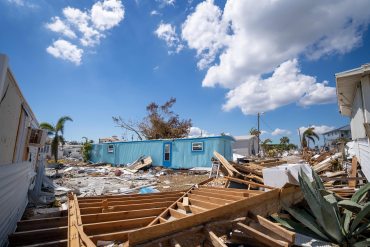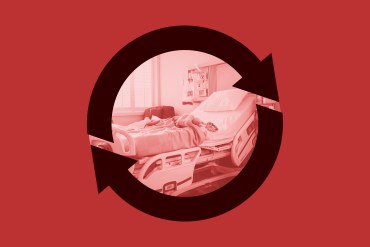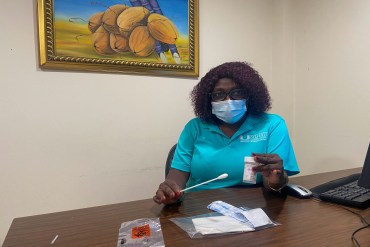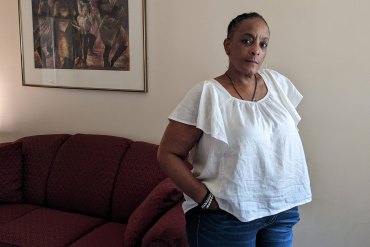Hurricane Ian’s Deadly Impact on Florida Seniors Exposes Need for New Preparation Strategies
Lengthy checklists from public health officials on handling emergencies miss vulnerable seniors who can’t always follow the recommendations.
Medicare Fines for High Hospital Readmissions Drop, but Nearly 2,300 Facilities Are Still Penalized
Federal officials said they are penalizing 2,273 hospitals, the fewest since the fiscal year that ended in September 2014. Driving the decline was a change in the formula to compensate for the chaos caused by the covid-19 pandemic.
This Open Enrollment Season, Look Out for Health Insurance That Seems Too Good to Be True
Complaints about misleading health insurance marketing are soaring. State insurance commissioners are taking notice. They’ve created a shared internal database to monitor questionable business practices, and, in the future, they hope to provide a public-facing resource for consumers. In the meantime, consumers should shop wisely as open enrollment season begins.
‘Fourth Trimester’ Focus Is Pushed to Prevent Maternal Deaths
Public health investigators found that 53% of maternal deaths happened well after a mother left the hospital — from seven days to a year after the birth.
Knoxville’s Black Community Endured Deeply Rooted Racism. Now There Is Medical Debt.
Despite the end of Jim Crow segregation, its legacy lives on in medical debt that disproportionately burdens Black communities.
States Opting Out of a Federal Program That Tracks Teen Behavior as Youth Mental Health Worsens
Colorado, Florida, and Idaho are the latest states to opt out of a survey that tracks concerning behaviors in high school students. Officials cite low participation and state laws that require parental permission. But some advocates say dwindling state participation is an “enormous loss” that will make it harder to track signs of poor mental health — like drug and alcohol misuse and suicidal ideation — among teens.
Hospitals Said They Lost Money on Medicare Patients. Some Made Millions, a State Report Finds.
A North Carolina state treasurer’s report found hospitals give conflicting information about whether they profit from Medicare patients. Experts said the findings are significant because they suggest the federal government has failed to closely watch the billions of dollars in tax breaks that nonprofit hospitals have received.
For the Houma People, Displacement Looms With Every Storm
The Houma, an Indigenous tribe, has seen much of its Gulf Coast community washed away by rising sea levels and dangerous storms. Its leaders say the tribe’s lack of federal recognition makes it harder to keep rebuilding.
Texas Revamps ‘Active-Shooter’ Drills at K-12 Schools to Minimize Trauma
School lockdown drills are designed to prepare students for violent threats. But for some students, especially those with special needs, the drills can trigger or exacerbate mental health problems. Texas is taking a step toward balancing safety and mental health with new regulations around how the drills are conducted. “If some kids are coming away traumatized or we’re magnifying existing trauma, we’re not moving in the right direction,” one expert says.
Centene Gave Thousands to Georgia Leaders’ Campaigns While Facing Medicaid Overbilling Questions
Centene is trying to settle accusations of Medicaid pharmaceutical overcharging in Georgia, and the St. Louis-based company has been giving thousands of dollars to the campaigns of the state attorney general and the governor.
Say What? Hearing Aids Available Over-the-Counter for as Low as $199, and Without a Prescription
The cheaper over-the-counter aids are for adults with mild to moderate hearing loss — a market of tens of millions of people, many of whom have until now been priced out because prescription devices can cost thousands of dollars.
Baby, That Bill Is High: Private Equity ‘Gambit’ Squeezes Excessive ER Charges From Routine Births
Hospitals, boosted by private equity-backed staffing companies, have embraced a new idea: the obstetrics emergency department. Often, it is just a triage room in the labor-and-delivery area, but it bills like the main emergency department.
As Giant Hospitals Get Bigger, an Independent Doctor Feels the Pinch
Independent medical practices keep closing as doctors join behemoth hospital groups or leave the field. Research suggests that’s bad news for patients. Studies repeatedly conclude that consolidation in the health care industry is driving up costs while showing no clear evidence of improved care.
Miami’s Little Haiti Joins Global Effort to End Cervical Cancer
Creole-speaking public health workers teach women how to test themselves for HPV, the virus that causes some cervical cancers.
Abortion Bans Skirt a Medical Reality: For Many Teens, Childbirth Is a Dangerous Undertaking
The laws criminalizing abortion in many conservative U.S. states are expected to boost birth rates among teens, whose bodies often aren’t built for safe childbirth. For adolescents, the emotional and physical challenges of carrying a pregnancy to term can be daunting.
Hurricane Ian Shows That Coastal Hospitals Aren’t Ready for Climate Change
Hundreds of medical centers along the Atlantic and Gulf coasts face serious risks from even relatively weak storms as climate change accelerates sea-level rise — not to mention big ones like Category 4 Hurricane Ian.
Medical Debt Sunk Her Credit. New Changes From the Credit Reporting Agencies Won’t Help.
New policies to prevent unpaid medical bills from harming people’s credit scores are on the way. But the concessions made by top credit reporting companies may fall short for those with the largest debt — especially Black Americans in the South.
Listen: Medical Bills Upended Her Life and Her Credit Score
Penny Wingard, 58, of Charlotte, North Carolina, worries she won’t ever get out from under her medical debt despite new policies that are supposed to prevent medical debt from harming people’s credit scores.
Turned Away From Urgent Care — And Toward a Big ER Bill
Russell Cook was expecting a quick and inexpensive visit to an urgent care center for his daughter, Frankie, after she had a car wreck. Instead, they were advised to go to an emergency room and got a much larger bill.
‘American Diagnosis’: When Indigenous People Move to Cities, Health Care Funding Doesn’t Follow
When Indigenous people started moving to cities in large numbers after World War II, many found hardship and discrimination there … but not the health care they were entitled to. Episode 12, the season finale, explores the efforts of urban Indian health providers to close those gaps by providing affordable, culturally competent care.



























